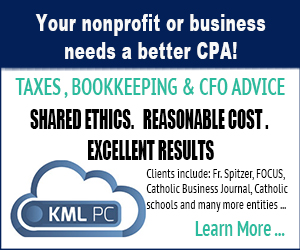Alliance Defending Freedom attorneys representing a Christian counselor filed a petition with the U.S. Court of Appeals for the 9th Circuit Tuesday that asks the full court to hear the case of Brian Tingley, a licensed marriage and family therapist in Tacoma, after a three-judge panel dismissed his case.
Tingley vs. Ferguson
Tingley is challenging a Washington state law that violates his freedom of speech and infringes on his religious faith and that of his clients by censoring and prohibiting certain private client-counselor conversations that the government disfavors. ADF attorneys are asking the court to reverse a district court’s decision that threw out Tingley’s challenge to the law.
“Brian has counseled all types of people for more than 20 years, and those conversations are private—certainly not open for the government to censor,” said ADF  Senior Counsel Roger Brooks, who argued before the 9th Circuit on behalf of Tingley. “The government has no business dictating what personal goals a client can or can’t pursue in counseling. We hope the full court will agree to hear this case and halt Washington state’s unlawful attempt to ban someone’s speech simply because they disagree with the viewpoints expressed.”
Senior Counsel Roger Brooks, who argued before the 9th Circuit on behalf of Tingley. “The government has no business dictating what personal goals a client can or can’t pursue in counseling. We hope the full court will agree to hear this case and halt Washington state’s unlawful attempt to ban someone’s speech simply because they disagree with the viewpoints expressed.”
Why it matters
“The panel’s decision conflicts with the Supreme Court and other circuits on core First Amendment questions,” the petition for rehearing en banc in Tingley v. Ferguson explains. “As the Eleventh Circuit has held, if a counselor’s speech can be transformed into conduct [that the government can regulate], so too could ‘teaching or protesting,’ ‘debating,’ and ‘book clubs.’”
In 2018, the state adopted a law that prohibits any conversation between a counselor and a minor client in pursuit of a goal to “change” that young person’s gender identity or sexual attractions. The lawsuit notes that the law censors simple conversations within a voluntary counseling relationship between a client and a counselor that are directed toward personal goals that the client chooses for himself or herself.
Significantly, the law only prohibits counsel in one direction: For example, it allows counseling conversations that aim to steer young people toward altering their sex but prohibits conversations that aim to help that same person achieve comfort with his or her sex. The law threatens fines of $5,000 per violation, suspension from practice, and even permanently revoking a counselor’s license.
Tingley has maintained a private practice offering counseling since 2002. He works with children, adults, and couples dealing with marital and family conflicts, sexual-orientation and gender-identity struggles, depression, anger, and stress management. Tingley engages in nothing but ordinary counseling methods —listening to each client, regardless of what they are facing, and supporting them as they work through these challenges to pursue their own life goals.
—listening to each client, regardless of what they are facing, and supporting them as they work through these challenges to pursue their own life goals.
—————-
Roger G. Brooks serves as senior counsel with Alliance Defending Freedom, where he is a key member of the Center for Conscience Initiatives. Brooks focuses his efforts on protecting freedom of speech, free exercise of religion, and parental rights, and defending those who believe that the biological reality of male and female matters. Prior to joining ADF in 2018, Brooks worked with the New York law firm of Cravath, Swaine & Moore for 25 years, 19 of those as a partner in the litigation department. Brooks received an A.B. from Princeton University, followed by a master’s degree in history and a Juris Doctor from the University of Virginia. After law school, Brooks clerked with the Hon. John D. Butzner, Jr., of the U.S. Court of Appeals for the 4th Circuit. He received his Master of Divinity from Regent College Seminary in Vancouver, British Columbia. Brooks served on the board of ADF (2012-2014) and on the board of the Christian Legal Society (2002-2011). He is a member of the state bars of New York and North Carolina.



You must be logged in to post a comment.